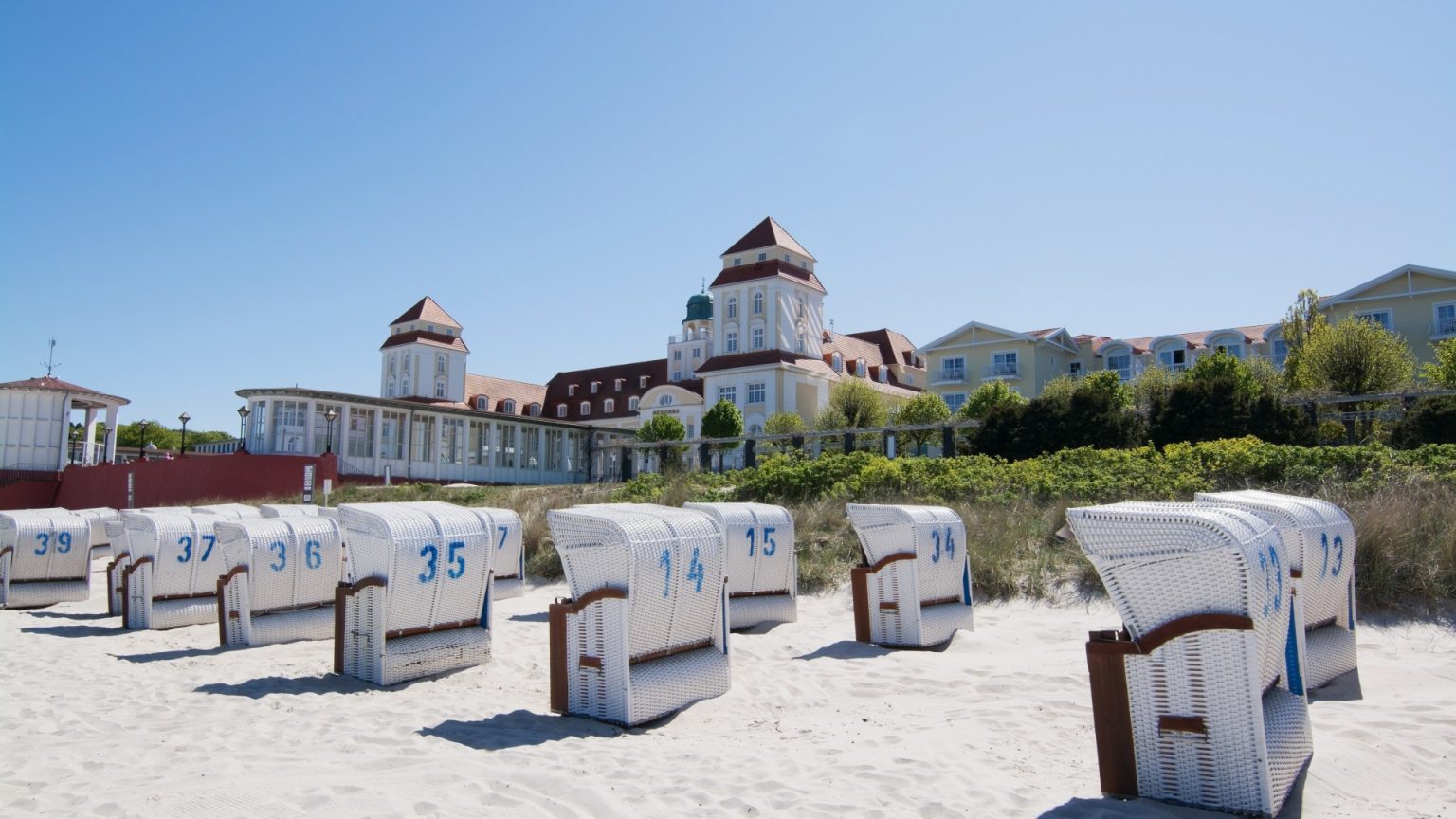Rügen, an island nestled off Germany’s northern coast, offers a unique blend of natural beauty and historical intrigue, drawing two million visitors annually, primarily from Germany. While less familiar to British travelers, this hidden gem boasts a distinct charm, often evoking a sense of nostalgia for the 1970s. Stretches of sandy beaches, totaling 37 miles, are dotted with retro striped deckchairs and wicker basket seating, creating a vintage seaside ambiance. Four charming towns and five popular resorts, including Binz, Baabe, Göhren, Sellin, and Thiessow, provide a variety of accommodations and attractions. Visitors can bask in the summer sun, with temperatures exceeding 20 degrees Celsius, and explore the island’s diverse landscape, encompassing vast fields of sunflowers and expansive lakes.
Binz, a bustling seaside resort, boasts the iconic “Seebrücke” pier, a popular spot for fishing and enjoying picturesque sunsets. Its beach is a prime location for sunbathing and soaking in the nostalgic atmosphere. Further down the coast, Sellin’s pier showcases a cinematic diving gondola, one of only four in the world, allowing visitors a dry underwater experience of the Baltic Sea. This distinctive feature adds to the island’s retro allure, contributing to the feeling of stepping back in time. The island’s architectural landscape further enhances this nostalgic ambiance, with structures reminiscent of the GDR era, blending with the natural beauty of the surroundings.
Beyond the beaches and resorts, Rügen offers a wealth of historical and natural attractions. The Granitz Hunting Lodge, a former royal residence dating back to the mid-19th century, now serves as a museum, providing a glimpse into the island’s aristocratic past. Jasmund National Park, despite being Germany’s smallest, houses the dramatic chalk cliffs and ancient beech forests that define the island’s rugged coastline. Königsstuhl, the island’s highest point, offers breathtaking panoramic views of the sea and can be reached via a scenic coastal path, adding a touch of adventure to the island’s exploration.
For those seeking a taste of local culture, Rügen boasts opportunities to delve into the world of German beer. The Rügener Insel-Brauerei in Rambin offers tours of their brewing process, complemented by tastings of both classic and rare beers, providing a unique sensory experience. Exploring the island is made easy with the Rügensche Kleinbahn railway, a historic train line connecting Binz to Sellin, Baabe, and Göhren. Passengers can journey through the picturesque landscape aboard vintage coaches, some over a century old, traversing 14.5 miles of railway track.
Accommodation options on Rügen cater to a range of budgets and preferences, from cozy holiday homes and apartments to campsites offering a more immersive experience of the island’s natural beauty. Remarkably, some holiday homes are available for as little as £54 per night, making Rügen an accessible destination for budget-conscious travelers. This affordability, coupled with the island’s unique blend of retro charm and natural beauty, makes it an appealing alternative to more mainstream European destinations.
The island’s unique atmosphere has resonated with visitors, with some describing a sense of being transported back to the 1970s. The stark architecture and man-made lakes, juxtaposed against the island’s natural splendor, create an ambiance reminiscent of the former GDR. The Dokumentationszentrum Prora in Binz, a colossal grey building now serving as a museum, stands as a poignant reminder of World War II history, adding another layer of historical significance to the island. This blend of historical intrigue, natural beauty, and retro charm makes Rügen a captivating destination for those seeking an off-the-beaten-path European experience.


